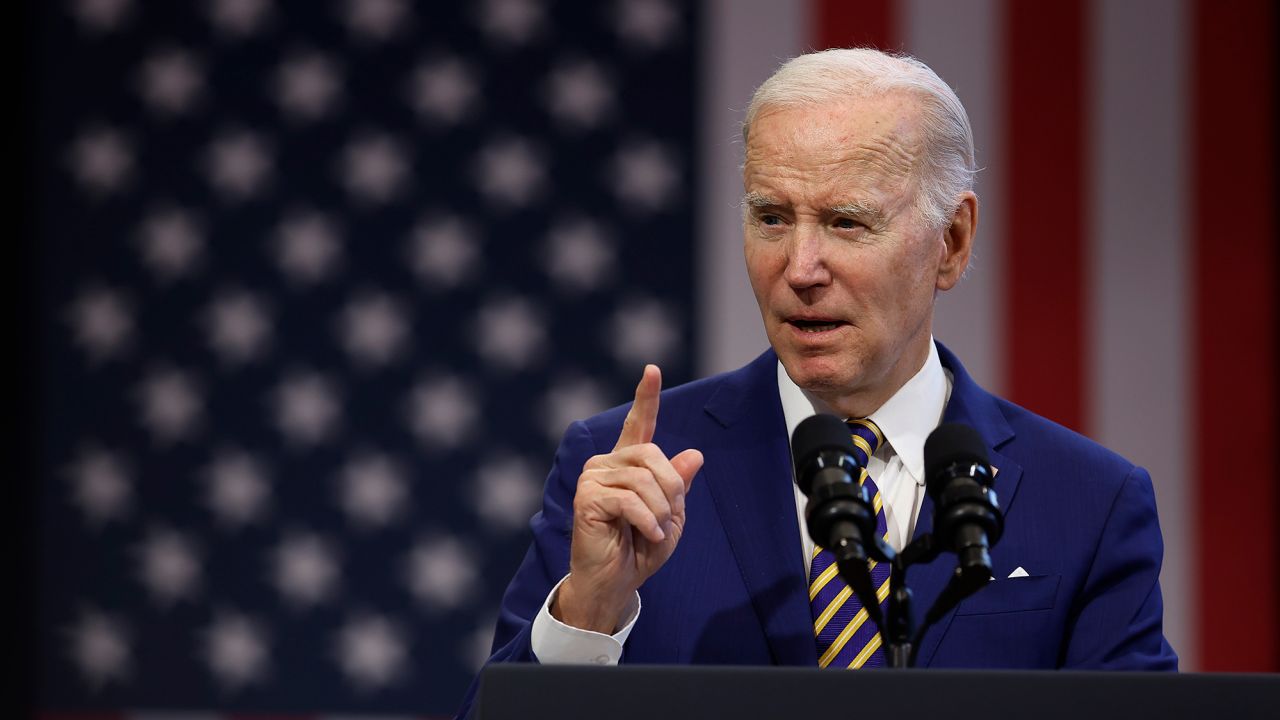
That outcome underscores the obstacles facing Biden now as he tries to recapture older voters by portraying Republicans as threats to the two towers of America’s safety net for the elderly. While polls consistently show that voters trust Democrats more than Republicans to safeguard the programs, GOP presidential nominees have carried all seniors in every presidential election back to 2004 and have reached at least 58% support among White seniors in each of the past four contests, exit polls have found. Democrats have likewise consistently struggled among those nearing retirement, older working adults aged 45-64.
Those results suggest that for most older voters, affinity for the GOP messages on other issues – particularly its resistance, in the Donald Trump era, to cultural and racial change – has outweighed their views about Social Security and Medicare. Those grooves are now cut so deeply, over so many elections, that Biden may struggle to change them much no matter how hard he rails against a range of GOP proposals that could retrench or restructure the programs.
Biden’s charge that Republicans are threatening the two giant entitlement programs for the elderly – which triggered his striking back and forth exchanges with GOP legislators during the State of the Union – fits squarely in his broader political positioning as he turns toward his expected reelection campaign.
As I’ve written, the 80-year-old Biden, at his core, “remains something like a pre-1970s Democrat, who is most comfortable with a party focused less on cultural crusades than on delivering kitchen-table benefits to people who work with their hands.” As president he’s expressed that inclination primarily through what he calls his “blue-collar blueprint to rebuild America” – the planks in his economic plans, such as generous incentives to revive domestic manufacturing, aimed at creating more opportunity for workers without a college degree. Politically, Biden’s staunch defense of Social Security and Medicare, programs critical to the economic security of financially vulnerable retirees, represents a logical bookend to that emphasis.
“We all know that whose side you are on is a critical debate point for every election and this debate over Social Security and Medicare really helps crystallize whose side Biden is on versus whose side Republicans are on in a very effective way for him,” said Democratic pollster Matt Hogan, who helped conduct an extensive series of bipartisan polls during the 2022 campaign measuring attitudes among seniors for the AARP, the giant lobby for the elderly.
From Franklin Roosevelt through Hubert Humphrey and Tip O’Neill, generations of Democrats have framed themselves as the defenders of the social safety net for seniors against Republicans who they say would unravel it. Biden showed how comfortable he was stepping into those shoes during his 2012 vice-presidential debate with Ryan, then a young representative from Wisconsin who Romney had selected as his running mate.
Nearly 30 years Biden’s junior, Ryan was an unflinching advocate of restructuring Social Security and Medicare to reduce costs over time. In particular, Ryan was the principal supporter of a conservative plan to convert Medicare, the giant federal health insurance program for the elderly, into a system called “premium support.” Under that proposal, Medicare would be transformed from its current structure, in which the government directly pays doctors and hospitals who provide care for beneficiaries, into a voucher (or “premium support”) system, in which the government would provide recipients a fixed sum to purchase private insurance. Ryan had also drafted proposals to partially privatize Social Security by allowing workers to divert part of their payroll taxes into private investment accounts, a change that would have reduced the tax dollars flowing into the system and eventually required substantial cuts in guaranteed benefits.
For nearly 11 minutes during the debate in October 2012, moderator Martha Raddatz of ABC skillfully guided Biden and Ryan through a heated, but civil and substantive, discussion of Social Security and Medicare’s future. Ryan insisted that changes were needed to preserve the programs’ long-term viability and that current seniors and those near retirement would not see their benefits reduced.
Biden appealed openly to the Democrats’ historic image as the programs’ protectors and condemned Ryan and the GOP for wanting to partially privatize them. At one point in the debate, Biden declared: “we will be no part of a [Medicare] voucher program or the privatization of Social Security.” A few moments later, he insisted: “These guys haven’t been big on Medicare from the beginning. And they’ve always been about Social Security as little as you can do. Look, folks, use your common sense. Who do you trust on this?”
At the time, Democrats felt Biden had at least held his own, restoring the party’s momentum after Obama’s surprisingly listless performance eight days earlier in his first debate against Romney. And Democrats through the rest of the campaign railed against the Republican ticket as a threat to Social Security and Medicare.
But on election day, those arguments did not translate into gains for Obama and Biden among seniors or the older working adults (aged 45-64) nearing retirement. As Hogan noted, the newly passed Affordable Care Act, which generated some of its funding through savings in Medicare, was extremely unpopular at the time among older voters. Obama and Biden not only lost seniors and the older working age adults, but actually ran slightly more poorly among both groups in 2012 than they did in 2008.
In fact, no Democratic presidential nominee since Al Gore in 2000 has carried most seniors in a presidential campaign; Obama in 2008 was the only one since Gore to carry most of the older working age adults. Among older Whites, the Democratic deficit is even more pronounced: the Republican presidential nominee has carried around three-fifths of both White seniors and those nearing retirement in each of the past four elections. Biden in 2020 slightly improved on Hillary Clinton’s anemic 2016 performance with both groups, but still lost to Trump by 15 percentage points among White seniors and by 23 points among the Whites nearing retirement, according to the exit polls conducted by Edison Research for a consortium of media organizations including CNN. Biden performed especially poorly among older Whites without a college degree – an economically stressed group heavily reliant on the federal retirement programs.



.gif)


 560
560
 0
0

























